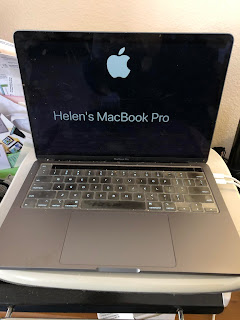Today, I did a presentation as part of a panel on Electronic/Digital Portfolios in Latin America. I prepared the presentation in English. Thanks to Dra. María Elena Chan Núñez of Universidad de Guadalajara, the presentation was translated into Spanish. In Zoom, I presented in English and listened to the English translation of the other two presentations in Spanish.
It was my first ePortfolio presentation since the pandemic began. I was beginning to wonder if the interest in ePortfolios was killed by the virus and remote learning! One of my regular newsletters, the National Institute for Learning Outcomes Assessment (NILOA), published this 57th Occasional Paper, which discusses "the history, use, and attributes of high-impact ePortfolio practice at IUPUI, as well as the development of an ePortfolio taxonomy, and concludes with a case study from its Philanthropic Studies B.A. program." They also referenced a few new ePortfolio books for higher educators that are great contributions to the field:Eynon, B., & Gambino, L. (2017). High-impact ePortfolio practice: A catalyst for student, faculty, and institutional learning. Sterling, VA: Stylus Publishing, LLC.
Eynon, B., & Gambino, L. (2018). Catalyst in action: Case studies of high-impact ePortfolio practice. Sterling, VA: Stylus Publishing, LLC.
Yancey, K.B., ed. (2019). ePortfolio-as-curriculum: Diverse models and practices. Sterling, VA: Stylus.



![Apple ][](https://blogger.googleusercontent.com/img/b/R29vZ2xl/AVvXsEhlBlMaZn91xldoUdZTCo_tngb-cZQHHIIzbF3HHwnnBx2LP-6g6ubSy0tawRgHFblSIU0nL1MOB-FVrh8FbloxkWKSrSCtNyP2-42P5QF3i4LUAYIXqbmz5VcPrXI8MMPmZgEr/w240-h320/IMG_0366.jpeg)



